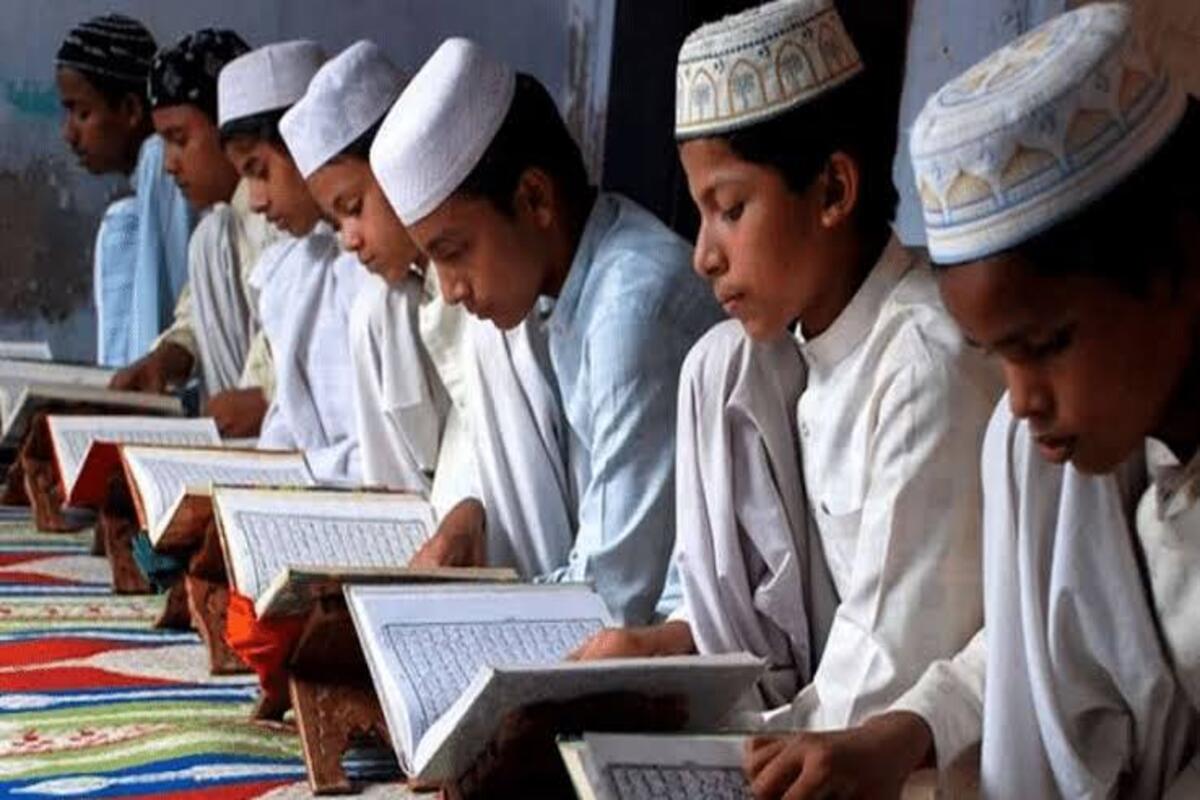Jharkhand unveils ambitious plans for education, science and innovation
The Jharkhand government has unveiled ambitious projects aimed at propelling the state into a new era of education, science, and innovation.
The Allahabad High Court in March this year had declared the Uttar Pradesh Board of Madarsa Education Act, 2004, as unconstitutional, violative of the principle of secularism and the right to equality guaranteed under Article 14 of the Constitutionon.

Representative Image
The National Commission for Protection of Child Rights (NCPCR) has said that Madrasas are unsuitable to impart quality education to the children attending them as they (Madrasas) not only render an unsatisfactory and insufficient education but also have an arbitrary mode of working which is wholly in absence of a standardized curriculum and functioning.
Stating this in its written submissions to the Supreme Court, the National Commission for Protection of Child Rights has said that a Madrasa is not a school as defined under Section 2(n) of the Right To Education Act, 2009 (RTE Act) and as such it is an “unsuitable/unfit place to receive ‘proper’ education …” and “It cannot be overlooked that a child getting education in such an Institution will be devoid of basic knowledge of school curriculum which is provided in a school.”
Advertisement
Further stating that a Madrasa “works in an arbitrary manner and runs in an overall violation of the Constitutional mandate, RTE Act and the Juvenile Justice Act, 2015,” the NCPCR has said that there are three categories of Madrasas – recognized madrasas, unrecognised madrasas and unmapped madrasas – those that have never applied for recognition by the state government.
Advertisement
The NCPCR has said, “Children also attend such institutions that are unrecognized as these are unmapped and the number of such institutions is not known. Therefore, whether these institutions provide quality education and the information on the environment these institutions provide to children also remains unknown. Children attending all such institutions (unrecognised and/or unmapped schools) are to be treated as Out of School, even if they provide regular education.”
The Allahabad High Court in March this year had declared the Uttar Pradesh Board of Madarsa Education Act, 2004, as unconstitutional, violative of the principle of secularism and the right to equality guaranteed under Article 14 of the Constitutionon.
Holding that the Uttar Pradesh Board of Madrasa Education Act, 2004, was unconstitutional, the High Court had directed the State government to “take steps forthwith for accommodating the madrasa students in regular schools recognised under the Primary Education Board and schools recognised under the High School and Intermediate Education Board of the state of Uttar Pradesh.”
The High Court verdict had come on a petition by a lawyer who had challenged the Madrasa Act
However, in April, the Supreme Court put on hold the High Court’s judgment, saying that the High Court prima facie misconstrued the Act and that the decision would impact nearly 17 lakh students.
Advertisement